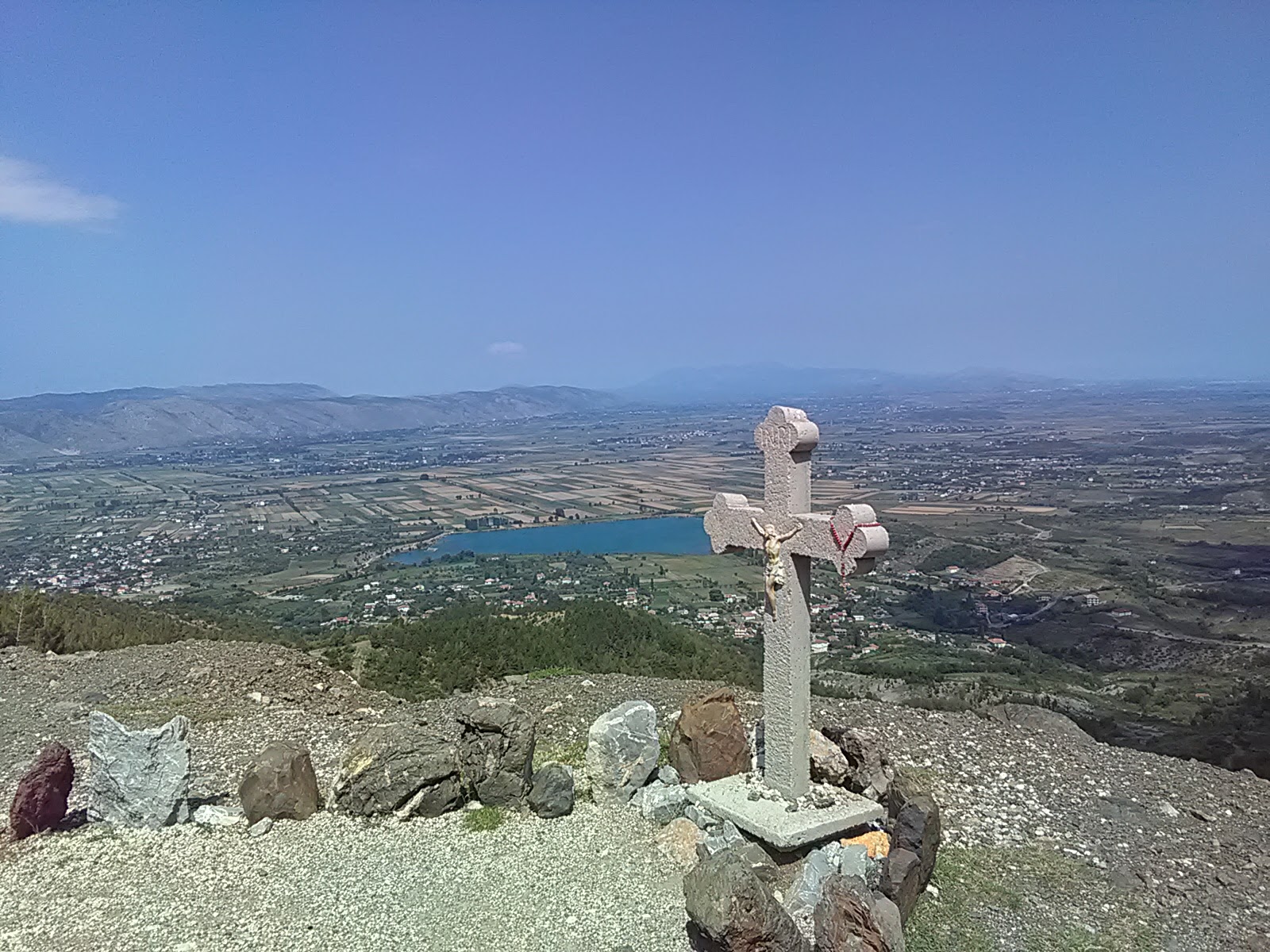Schwerter zu Plugscharen!
unter diesem Motto aus Mi 4,1–4 EU steht der Bericht meiner Langzeitwahlbeobachtung der albanischen Parlamentswahlen vom 25.06.2017. Er beinhaltet:
- Wahlmissionen der OSZE
- Albaniens politische Landschaft des Postkommunismus
- Die Wahlen
- Ausblick
Das witzigste an dem Land sind die Bunker. Über 200.000 sollten gezählt werden können. Man sieht sie am Strassenrand oder in jedem Garten, auf den Bergkuppen oder am Meerestrand. Die wenigstens waren jemals zu irgendwas nütze. Ein paar wenige sind als Marienkäfer verziehrt, oder wie dieser hier, begrünt. Die meisten stehen verlassen… “auf einem Bein,” tönt es aus dem Kinderzimmer…
Die griechisch-orthodoxe Kirche, von der aus dieses Panoramabild von Lezhe aufgenommen wurde, symbolisiert zweierlei: Zum einen glänzt sie mit ihrer ständigen Verschlossenheit. Die Lethargie der Menschen ist erstaunlich. Zum anderen zeichnet sie den Weg Griechenlands vor. Orthodoxie gibt´s nicht in Albanien, und wenn, dann wäre Albanien serbisch-orthodox und nicht griechisch. Dort verkaufte der europäische Kern Infrastrukturprojekte, die niemand braucht.
Regionalisieren: Westbalkan; Bildungsarbeit, Arbeiterbildungsvereine, das pan-/transeuropäische-regionale Eisenbahnnetzwerk, hobos g/locales





10 comments for “Bunkers to Ballot-Boxes”